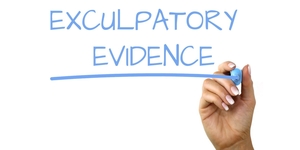
On August 23, 2019, the Tennessee Supreme Court declared that “the ethical obligations” of prosecutors to disclose exculpatory evidence under Rule 3.8(d) of Tennessee’s Rules of Professional Conduct are “coextensive in scope with the obligations of a prosecutor as provided by applicable statute, rules of criminal procedure, our state and federal constitutions, and case law.” See In re Petition to Stay the Effectiveness of Formal Ethics Opinion 2017-F-163 at 14 (Tn. Aug. 23, 2019). In so doing, the court rejected an effort by the state’s Board of Professional Responsibility to significantly broaden the disclosure obligation.1
Notably, the Tennessee Supreme Court quoted a recent Louisiana Supreme Court opinion addressing the same issue under Louisiana Rule of Professional Conduct 3.8(d). That opinion, In re Seastrunk, held that the a prosecutor’s duties under Rule 3.8(d) and Brady v. Maryland (U.S. 1963) “are coextensive.” See In re Ronald Seastrunk, No. 2017-B-0178 (La. Oct. 18, 2017).
The Tennessee Supreme Court’s decision is sensible. The Louisiana Supreme Court should follow suit. The Louisiana District Attorneys Association recently sent a letter to the court requesting that it amend Louisiana Rule of Professional Conduct 3.8(d) to accurately reflect a Louisiana prosecutor’s obligation to produce exculpatory Brady material in criminal cases. See LDAA Letter to Louisiana Supreme Court Regarding Rule 3.8(d) (Jul. 22, 2019).

The LDAA sent this letter in response to the Louisiana State Bar Association’s May 2018 rejection of a proposed amendment to Rule 3.8(d) that would have brought the black-letter text of the rule into line with the court’s ruling in In re Seastrunk. Instead, the LSBA elected to retain language that is simply no longer the law in Louisiana. A baffling and bizarre decision indeed.
The LDAA’s resolution, if adopted by the Louisiana Supreme Court, would revise Rule 3.8(d) to include the Brady “materiality” standard in the black-letter text of the rule:
The prosecutor in a criminal case shall: . . . (d) make timely disclosure to the defense of all material evidence or information known to the prosecutor that the prosecutor knows, or reasonably should know, either tends to negate the guilt of the accused or mitigates the offense, and, in connection with sentencing, disclose to the defense and to the tribunal all material unprivileged mitigating information known to the prosecutor, except when the prosecutor is relieved of this responsibility by a protective order of the tribunal . . . .
See LDAA Letter to Louisiana Supreme Court Regarding Rule 3.8(d) (Jul. 22, 2019). This proposed revision is sensible and would provide clear and accurate guidance to Louisiana prosecutors. It should be adopted by the court.
- More particularly, the Board had opined as follows: “This ethical duty is separate from disclosure obligations imposed under the Constitution, statutes, procedural rules, court rules, or court orders. A prosecutor’s ethical duty to disclose information favorable to the defense is broader than and extends beyond Brady.”[↩]
